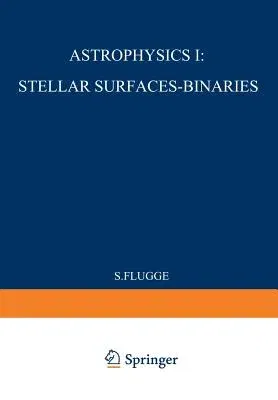S Flügge
(Author)Astrophysik I: Sternoberflächen-Doppelsterne / Astrophysics I: Stellar-Surfaces-Binaries (Softcover Reprint of the Original 1st 1958)Paperback - Softcover Reprint of the Original 1st 1958, 1 March 2012

Qty
1
Turbo
Ships in 2 - 3 days
In Stock
Free Delivery
Cash on Delivery
15 Days
Free Returns
Secure Checkout
Part of Series
Handbuch Der Physik Encyclopedia of Physics
Part of Series
Handbuch Der Physik Encyclopedia of Physics / Astrophysik /
Part of Series
Astrophysik / Astrophysics
Print Length
458 pages
Language
GermanEnglishFrench
Publisher
Springer
Date Published
1 Mar 2012
ISBN-10
3642459072
ISBN-13
9783642459078
Description
Product Details
Author:
Book Edition:
Softcover Reprint of the Original 1st 1958
Book Format:
Paperback
Country of Origin:
NL
Date Published:
1 March 2012
Dimensions:
24.41 x
16.99 x
2.39 cm
ISBN-10:
3642459072
ISBN-13:
9783642459078
Language:
German
English
French
Location:
Berlin, Heidelberg
Pages:
458
Publisher:
Series:
Weight:
739.35 gm

